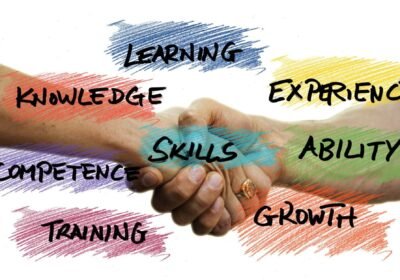The Ultimate CMA Exam Preparation Guide: Tips and Tricks to Clear the Exam
Understanding the CMA Exam Structure
The Certified Management Accountant (CMA) exam is designed to assess the competency of finance and management professionals. It consists of two parts, making it essential for candidates to understand the structure of each segment for effective preparation. The first part focuses on Financial Planning, Performance, and Analytics, while the second part emphasizes Strategic Financial Management. Both components are intricate and require a solid grasp of essential financial concepts.
The exam format includes multiple-choice questions and essay questions. Specifically, each part contains 100 multiple-choice questions and two essay questions that require comprehensive responses. Candidates must navigate through the multiple-choice section, which tests knowledge in various areas, including budgeting, forecasting, performance measurement, and financial risk management. The essay component is critical as it assesses the candidate’s ability to apply concepts to realistic scenarios, showcasing analytical and decision-making skills.
Scoring for the CMA exam is based on a scale of 0 to 500 for each part, with a passing score set at 360 or higher. This scoring system emphasizes not just knowledge but the application of that knowledge in practical situations. The exam’s focus extends to essential themes in management accounting, including control and decision support systems. Professional ethics also plays a critical role, reinforcing the need for integrity in financial reporting and analysis. Candidates are therefore not only evaluated on their technical skills but also on their understanding of ethical standards in accounting practices.
In conclusion, grasping the structure of the CMA exam, including its two parts, question types, and scoring system, is paramount for candidates. With careful attention to the exam’s core areas, aspiring CMAs can tailor their study strategies for optimal performance.
Creating a Study Schedule
Crafting an effective study schedule is a fundamental step in preparing for the CMA exam. A well-structured plan not only enhances time management but also ensures thorough coverage of the material needed to pass the exam. The first step in this process is to assess your personal commitments, including work, family, and social activities. This assessment allows you to allocate specific time slots for studying, making the schedule more realistic and achievable.
When developing your study schedule, it is crucial to set realistic goals. Break down the CMA exam content into manageable sections, and assign specific topics to each study session. This technique helps prevent feeling overwhelmed while allowing for progressive mastery of the material. Incorporating daily and weekly targets can assist in tracking your progress and maintaining motivation throughout the study period.
Additionally, consider your learning style when scheduling study time. Some individuals benefit from longer, uninterrupted study sessions, while others may find shorter, more frequent sessions to be more effective. Experiment with different approaches to determine which format helps retain information best. Furthermore, it is essential to allocate time for revision within your study schedule. Frequent review of previously covered topics reinforces learning and aids in better retention of exam material.
Another valuable tip is to incorporate regular breaks into your study sessions. Brief breaks can enhance productivity and prevent burnout, allowing you to return to your studies refreshed and focused. Utilize tools like calendars or digital apps designed for time management to keep your study schedule organized and easily adjustable as needed.
In conclusion, an effective study schedule for the CMA exam should maximize your available time, cater to your unique learning preferences, and establish clear objectives. By following these guidelines, you can confidently prepare for the exam and increase your chances of success.
Choosing the Right Study Materials
When preparing for the Certified Management Accountant (CMA) exam, the choice of study materials is crucial to ensure success. A well-structured study plan should incorporate a mix of resources such as textbooks, online courses, practice exams, and review courses. Each of these materials serves a distinct purpose and can enhance your understanding of the exam content and format.
Textbooks are the foundation of CMA exam preparation. Select textbooks that are widely recognized and align with the CMA curriculum. Look for authors who are reputable in the field and whose texts cover all the necessary topics in detail. It is also beneficial to consult the official CMA exam syllabus provided by the Institute of Management Accountants (IMA) to ensure the resources adequately cover each area of the exam.
Online courses have gained popularity due to their flexibility and comprehensive coverage. These courses often include video lectures, interactive quizzes, and forums for discussion. When selecting an online course, consider those that offer a structured approach, enabling you to progress through the material systematically. Reading user reviews can provide insight into the course effectiveness in preparing for the exam.
Practice exams are another vital component of effective CMA exam preparation. These exams simulate the actual test environment and provide an opportunity to apply knowledge under timed conditions. Utilizing practice tests allows you to identify strengths and weaknesses in your understanding, facilitating targeted study sessions. Ensure that practice exams are updated to reflect the current CMA exam format.
Lastly, review courses can consolidate your understanding and reinforce key concepts. Such courses often summarize extensive content and provide strategies for effective studying. Choose a review course that is recommended by past candidates and fits your learning style. By carefully choosing the right combination of study materials, you can enhance your CMA exam preparation, increasing your chances of success.
Effective Study Techniques
Preparing for the CMA exam requires more than just passive reading; it necessitates active engagement with the material. One highly effective method is active recall, which involves retrieving information from memory rather than re-reading content. This technique can be implemented by regularly testing oneself on the material studied, using practice questions, or summarizing key concepts without looking at the notes. By actively engaging with the material, candidates enhance their retention and deepen their understanding of complex topics.
Another complementary technique is spaced repetition. This method distributes study sessions over increasing intervals of time, reinforcing memory retention and preventing forgetting. When utilizing spaced repetition, candidates might schedule shorter, focused study sessions throughout the week, gradually increasing the interval before revisiting each topic. This approach is grounded in cognitive science and has been shown to significantly boost learning effectiveness, making it an essential practice for CMA exam aspirants.
Additionally, the use of flashcards can complement these techniques. Flashcards are an excellent tool for reinforcing knowledge through quick, self-paced review sessions. Creating flashcards for key terms, formulas, and concepts ensures regular exposure to critical information, which is vital for mastering the vast CMA syllabus. Incorporating visual elements or mnemonics on these cards can further enhance memory retention.
Engaging with the material using these interactive methods not only solidifies understanding but also makes the learning process more enjoyable. These study techniques encourage personal accountability and promote a deeper level of comprehension. Therefore, candidates who adopt a combination of active recall, spaced repetition, and flashcard usage will likely find themselves better prepared for the challenges of the CMA exam.
Practice Exams and Mock Tests
Incorporating practice exams and mock tests into your CMA exam preparation plan is essential for developing a solid understanding of the material and enhancing your examination skills. These tools serve multiple purposes, beginning with their ability to simulate the actual testing environment. By familiarizing yourself with the exam format and style of questions, you are better equipped to manage the pressure of the real test.
Moreover, engaging with practice exams allows you to assess your current knowledge base. After completing a practice test, it is crucial to review your performance thoroughly. This not only highlights the topics you have mastered but also identifies areas where improvement is required. Understanding these weaknesses enables you to focus your study efforts on specific subjects, ensuring a more efficient preparation process.
Furthermore, the experience gained from taking mock tests enhances your decision-making during the exam. Time management is a significant factor in successfully passing the CMA exam, and regular practice helps you develop a strategy for pacing yourself. By timing your practice exams and adhering strictly to the allocated time limits, you will build the necessary skills to navigate the exam efficiently and effectively.
To maximize the benefits of practice exams, it is advisable to combine them with a comprehensive review of the relevant materials. Many candidates find it beneficial to take a practice exam after completing a significant section of their study material. This strategy reinforces what has been learned and provides an immediate opportunity to apply that knowledge in a test-like scenario. Additionally, consider seeking out different sources for practice questions, as this will expose you to a variety of question styles and deepen your understanding.
Dealing with Exam Anxiety
Exam anxiety is a common experience among students preparing for rigorous assessments such as the CMA exam. Understanding and managing this anxiety can significantly impact performance. Several strategies can be employed to help mitigate the stress that often accompanies exam preparation.
One effective method for managing anxiety is the practice of relaxation techniques. Deep breathing exercises, progressive muscle relaxation, and visualization can help calm the mind and reduce physical tension. For instance, taking a few minutes to practice deep breathing before study sessions can ground the individual and provide clearer focus. This method allows candidates to counteract those unsettling feelings that can arise during periods of intense study.
Mindfulness practices also play a crucial role in combating exam-related stress. Mindfulness involves being present in the moment, which can help students avoid spiraling thoughts about the exam. Engaging in mindfulness meditation, journaling, or simply taking a moment to appreciate one’s surroundings can create a tranquil environment conducive to study. By incorporating these practices into daily routines, candidates can foster a sense of control and emotional stability leading up to the day of the exam.
Additionally, maintaining a positive mindset is paramount. It is essential to replace negative self-talk with encouraging affirmations. This shift in perspective can bolster confidence and alleviate fears of failure. Embracing a growth mindset—understanding that preparation and effort lead to improvement—can significantly enhance one’s approach to studying and ultimately contribute to reducing anxiety levels.
In conclusion, managing exam anxiety is a multifaceted approach that includes relaxation techniques, mindfulness practices, and nurturing a positive mindset. These strategies can empower individuals to face the CMA exam with confidence and clarity, turning apprehension into a focused determination to succeed.
Utilizing Study Groups and Forums
Joining study groups and online forums can significantly enhance the preparation experience for candidates pursuing the Certified Management Accountant (CMA) exam. Collaborative learning environments provide numerous benefits, including improved understanding of complex topics, increased motivation, and opportunities for resource sharing. Engaging with peers allows CMA candidates to explore different perspectives and methods of tackling exam content, which can lead to a deeper and more diversified grasp of the subject matter.
One of the key advantages of participating in study groups is the chance to discuss challenging concepts in real-time. Group members can clarify misunderstandings, breakdown intricate topics, and assist each other in grasping difficult areas of the CMA syllabus. This dialogue promotes a collective learning dynamic that can be particularly beneficial for visual and auditory learners who thrive in social settings. Additionally, study groups often help individuals stay accountable to their study schedules, encouraging consistency in preparation.
Online forums serve a similar purpose by connecting CMA candidates across diverse geographical locations. These platforms facilitate discussions on exam preparation strategies, study materials, and resources like practice quizzes and exam experiences. Additionally, candidates can seek advice on managing exam anxiety and maintaining study motivation. Many forums also host experienced CMA professionals who share valuable insights and tips, assisting candidates to navigate their preparation journey effectively.
Moreover, both study groups and forums can foster a supportive community among CMA candidates, which is crucial during the sometimes overwhelming process of exam preparation. By sharing both successes and setbacks, candidates can cultivate resilience and camaraderie with fellow test-takers. Ultimately, utilizing study groups and forums not only enriches knowledge but also builds a sense of community, making the CMA preparation process more enjoyable and engaging.
Test Day Preparation and Strategies
Preparing for the CMA exam requires not only diligent study but also careful planning as test day approaches. In the week leading up to the exam, it is crucial to establish a checklist that ensures you are fully prepared both logistically and mentally. Verify your exam location and confirm the time to avoid any last-minute confusion. Consider visiting the testing center if possible to familiarize yourself with the surroundings, which can help reduce anxiety on the actual day.
As the exam day approaches, ensure to pack your essentials the night before. This should include your admission ticket, a valid photo ID, acceptable calculators, and any other approved materials. Rest well the night before and aim to have a nutritious breakfast on the day of the exam to maintain your energy levels. Arriving at the venue early will provide you ample time to check in, reducing unnecessary stress.
During the CMA exam, effective time management is critical. It is advisable to allocate a specific amount of time to each section, keeping track of your progress throughout. This will help you avoid getting bogged down on any single question, thus ensuring that you can address all parts of the exam efficiently. If a question proves challenging, it may be beneficial to skip it and return later once you have tackled the easier questions.
In answering multiple-choice questions, look for keywords or phrases that can help identify the correct answers. Familiarize yourself with common traps or distractors that may seem plausible but do not align with the core concepts of CMA exam material. Utilizing the process of elimination can also enhance your chances of selecting the correct option. These strategies not only promote efficient test-taking but also support improved performance under pressure, setting you up for success on your CMA exam day.
Post-Exam Reflection and Next Steps
After completing the CMA exam, candidates should take time to reflect on their experience. This reflection is crucial, regardless of the outcome, as it provides insights into preparation methods, time management, and test-taking strategies. Consider journaling your thoughts about the exam: what questions you found challenging, areas where you felt confident, and how effectively you managed your exam time. Identifying these factors can pave the way for improved performance in the future.
If you successfully pass the CMA exam, congratulations! This achievement marks a significant milestone in your professional journey. In the wake of passing the exam, focus on maintaining momentum. Look into opportunities for continued professional development, such as attending workshops, webinars, or enrolling in courses related to management accounting. These activities not only enhance your skills but also expand your professional network, offering valuable connections in the industry.
For those who do not pass, it is important to remember that this is not the end of your journey. Many successful CMA professionals have faced failure before achieving their certification. After a thorough reflection, identify the areas that require further study or practice. Create a revised study plan that targets these weaknesses. Consider joining a study group or seeking a mentor who can offer support and guidance through the retake process. Staying motivated is essential; remind yourself of your long-term goals and the benefits that passing the CMA exam will bring to your career.
In conclusion, whether you pass or need to retake the CMA exam, taking time for reflection and mapping out your next steps are integral to your ongoing professional development. Both paths present opportunities for growth, learning, and renewed commitment to achieving your goals in management accounting.






